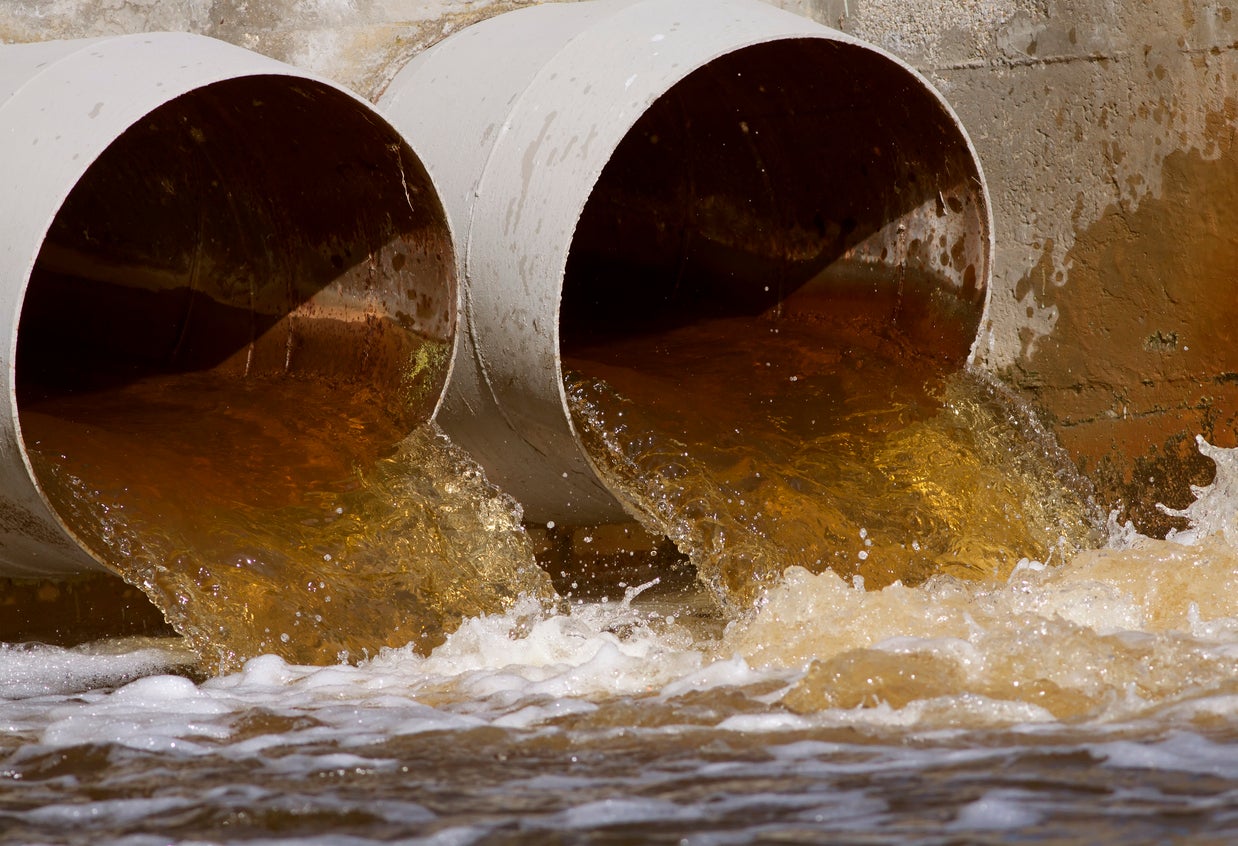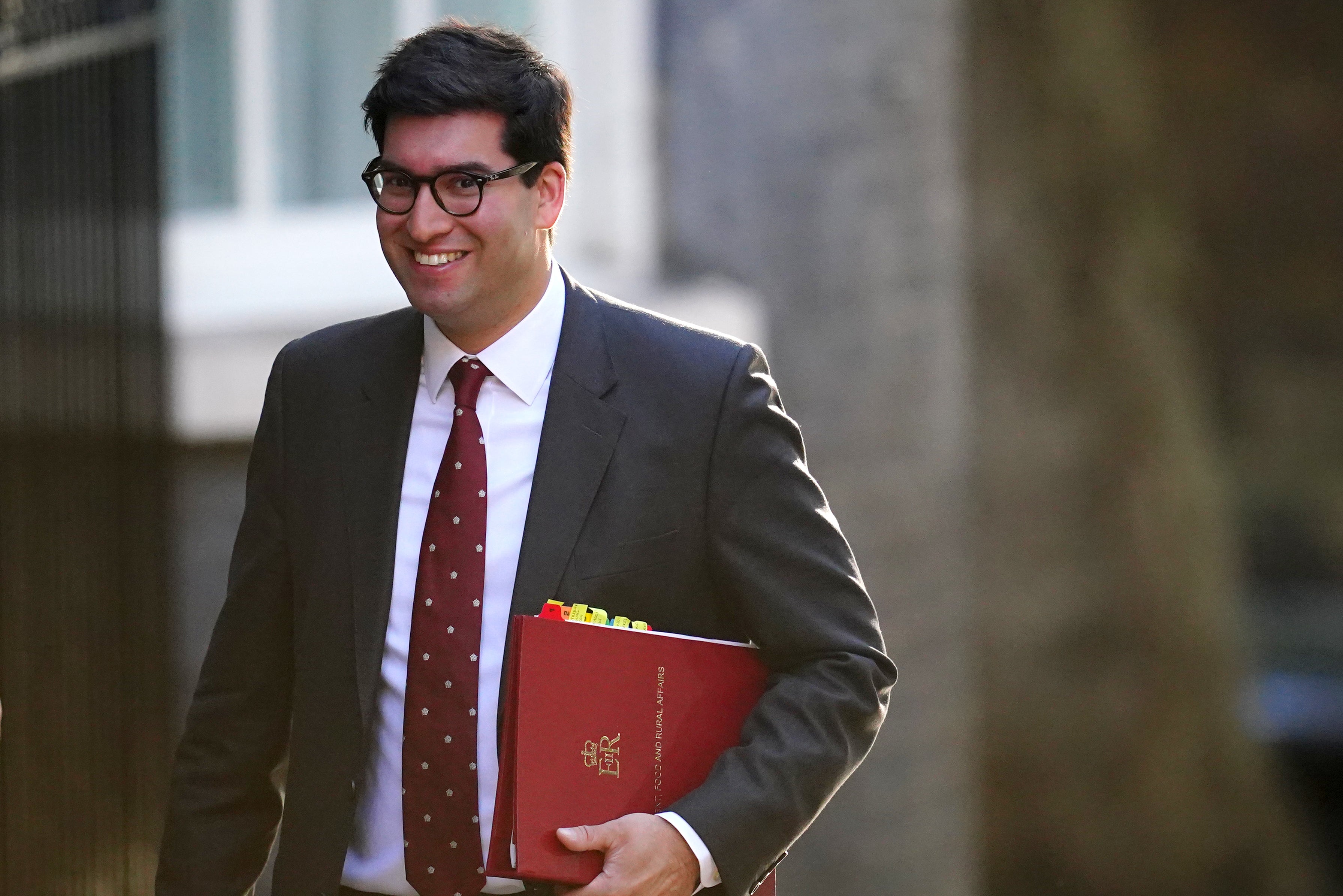Environment secretary’s own constituency has sewage dumped in rivers 11 hours a day
Ranil Jayawardena was appointed by Liz Truss earlier this month

Your support helps us to tell the story
From reproductive rights to climate change to Big Tech, The Independent is on the ground when the story is developing. Whether it's investigating the financials of Elon Musk's pro-Trump PAC or producing our latest documentary, 'The A Word', which shines a light on the American women fighting for reproductive rights, we know how important it is to parse out the facts from the messaging.
At such a critical moment in US history, we need reporters on the ground. Your donation allows us to keep sending journalists to speak to both sides of the story.
The Independent is trusted by Americans across the entire political spectrum. And unlike many other quality news outlets, we choose not to lock Americans out of our reporting and analysis with paywalls. We believe quality journalism should be available to everyone, paid for by those who can afford it.
Your support makes all the difference.Untreated sewage is being dumped into rivers in the environment secretary's constituency for an average of 11 hours every day, official figures show.
According to Environment Agency statistics Ranil Jayawardena's North East Hampshire constituency was subjected to over 4,000 hours of sewage discharge last year.
Opposition parties accused the government of making “excuse after excuse” for failing to stop the dumping by privatised water companies.
There has been a 2,553 per cent increase in sewage discharges over the last five years, according to the Environment Agency's figures.
And despite rules that say they should only be dumping the sewage in exceptional circumstances, official figures show storm sewage discharges surged by more than a third between 2019 and 2020, to 403,171 incidents.
England’s chief medical officer Professor Chris Whitty has said the growing problem of faeces in river water is a “major issue” and “unacceptable on health grounds”.
Last week Labour threatened to jail the executives of private water companies who failed to clean up their act, while the Liberal Democrats have called for bonuses to be restricted until the problem is solved.
Mr Jayawardena, who was appointed last month, has given water bosses two weeks to present their plans to tackle the problem.

In 2021 in Fleet, which is in the environment secretary's constituency, there were 77 sewage discharges lasting 1,095 hours into Fleet Brook.
Nearby Silchester, north of Basingstoke, saw 63 discharges into Silchester Brook lasting 968 hours, according to data from the Environment Agency.
“Throughout a summer of unprecedented heat, people’s attempts to cool off in rivers, lakes and on beaches have been ruined by the dumping of raw sewage. Yet it seems the new environment secretary appointed by Liz Truss is a sewage scandal denier," said Tim Farron, the Liberal Democrats' environment spokesperson.
“Ranil Jayawardena only needs to look at his constituency in Hampshire, where residents are unknowingly walking alongside contaminated rivers or swimming in polluted lakes.
“Jayawardena and the Conservatives’ have given excuse after excuse for failing to take responsibility for stopping the dumping of filthy sewage in our waterways.”
Mr Farron said the water companies had fallen behind in investing in infrastructure. Britain's water industry was privatised from 1989 and since privatisation, shareholders have been paid £72bn in dividends and racked up £56bn in debts. Prices for bill payers have risen 40 per cent in the same period.
Beaches were closed in some parts of the UK during the summer because of the high level of untreated sewage posing a health hazard to swimmers.
A spokesperson for Defra, Mr Jayawardena’s department, said: “Water companies’ reliance on overflows – whether it is water from drains at the side of the road or from people’s homes – is unacceptable and they must significantly reduce how much sewage they discharge as a priority.
“The environment secretary challenged water bosses to improve their environmental performance and deliver more for customers on his first day in office. They have provided us with their plans and we are scrutinising their contents carefully to determine next steps.
“Our Storm Overflow Reduction Plan is a strong starting point, setting the strictest targets ever for water companies on sewage pollution and will require them to deliver the largest infrastructure programme in water company history – £56bn capital investment over 25 years.”



Join our commenting forum
Join thought-provoking conversations, follow other Independent readers and see their replies
Comments